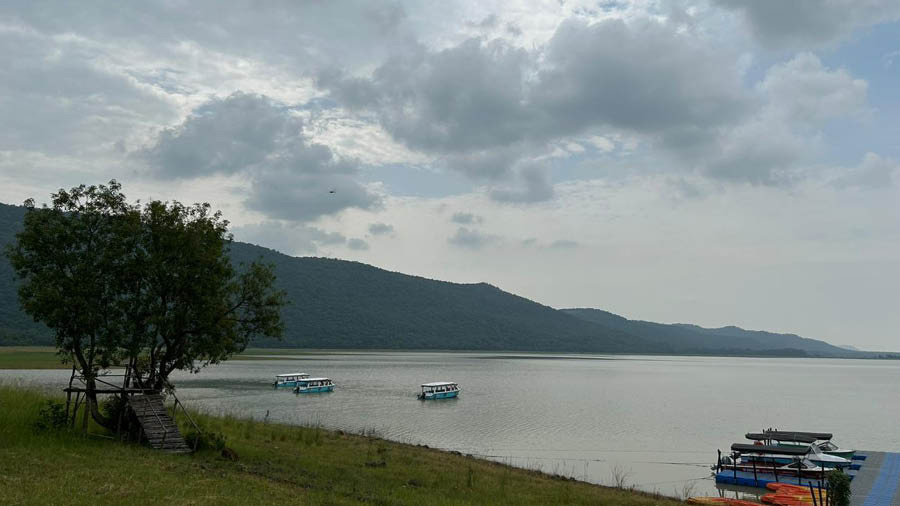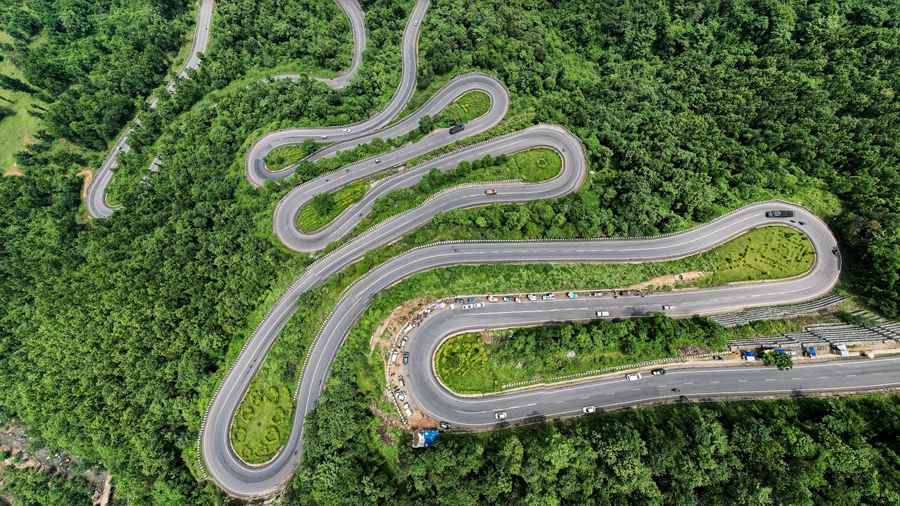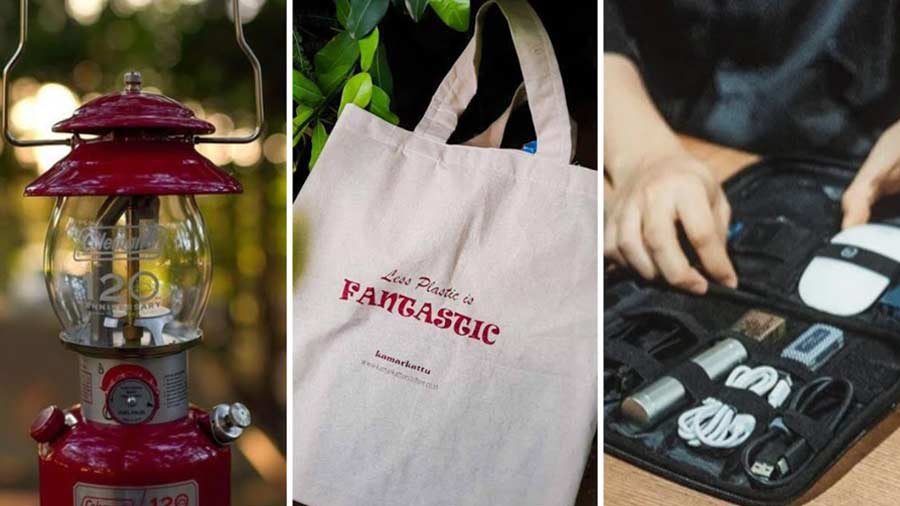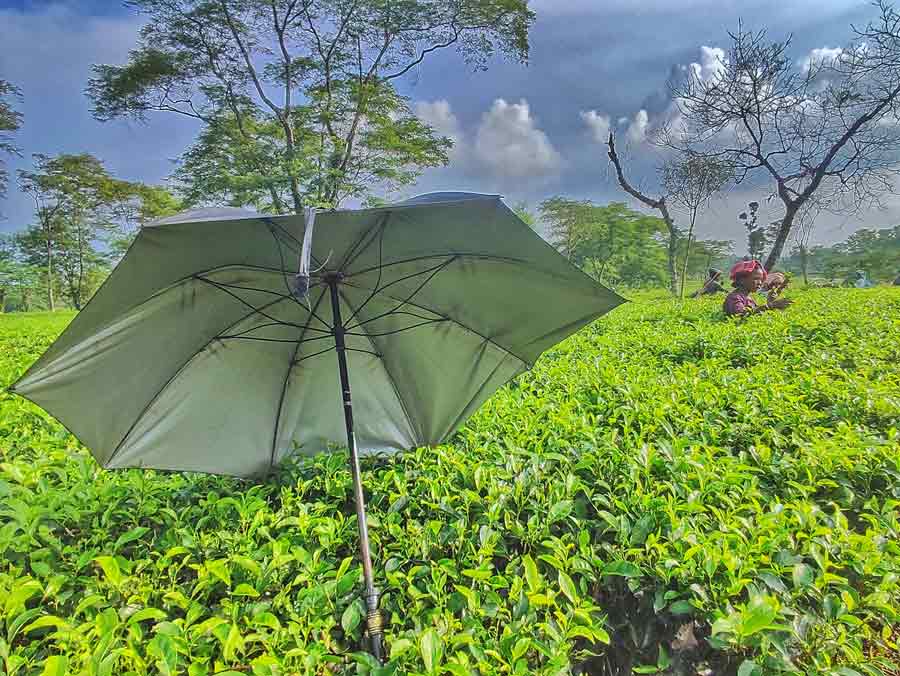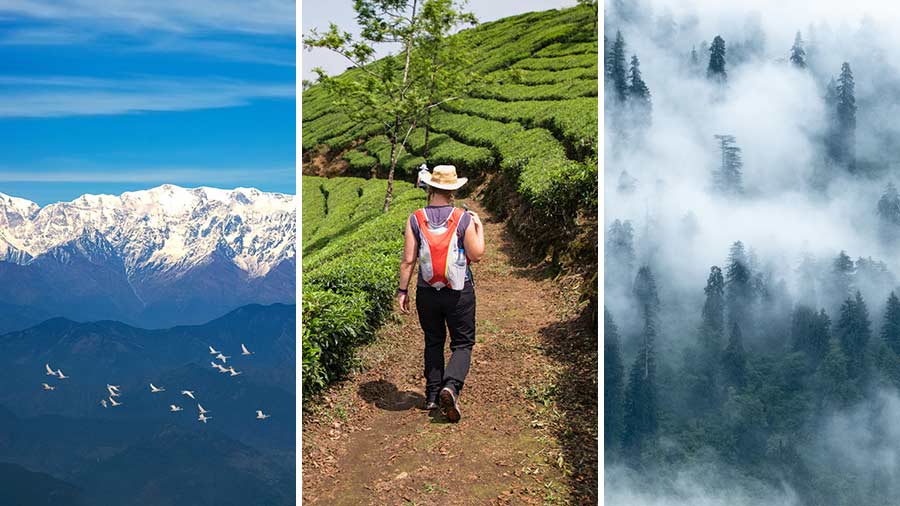Not a whiff of burnt fuel, just petrichor and the scents of nature at its picturesque best. No horns or urban cacophony, but birdsong and delightful chirps. Who would have thought that a quick getaway on a long weekend would turn into a travel experience of a lifetime?
The love for finding hidden gems and little getaway tucked in corners of the country pointed us to two lesser known tourist destinations of Odisha — Tensa and Debrigarh. Hidden in the heart of the eastern state, Debrigarh has been blessed by nature. If you are staying overnight at Tensa like we did, it will take you around six hours by road to reach Debrigarh. Our destination was the Debrigarh Nature Camp, the rustic stay within Debrigarh Wildlife Sanctuary.
Into the lap of nature
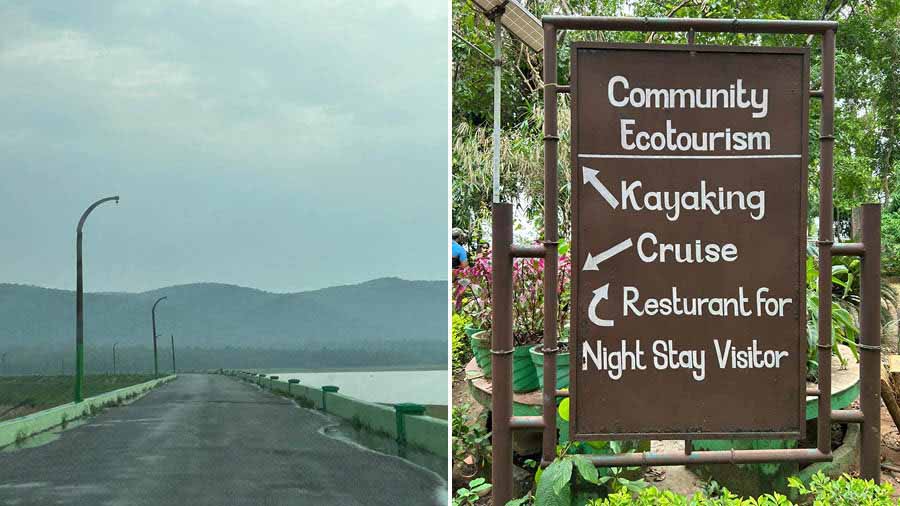
The bridge on Hirakud Dam that leads to Debrigarh Nature Camp, and (right) a board detailing the activities offered at the stay
Reaching the nature camp is a mini adventure in itself. Perhaps the best stretch of the approach is the 15km over the dyke on Hirakud Dam.The drive on the road over the dyke gives you an unhindered glimpse of the expanse on both sides. You can also park along the road and capture the landscape. Word of caution: the gusts of wind on the bridge are strong. Best to be on the lower side of the speed limit, and avoid leaning towards the water from the bridge.
The bridge ends at the gate of Debrigarh Wildlife Sanctuary, where you must stop at the registration office to get a pass for the jungle visit and your stay at the nature camp. Don’t forget to collect a travel brochure from the office. This junction is also where you can find a souvenir shop for local knick-knacks and a cafe.
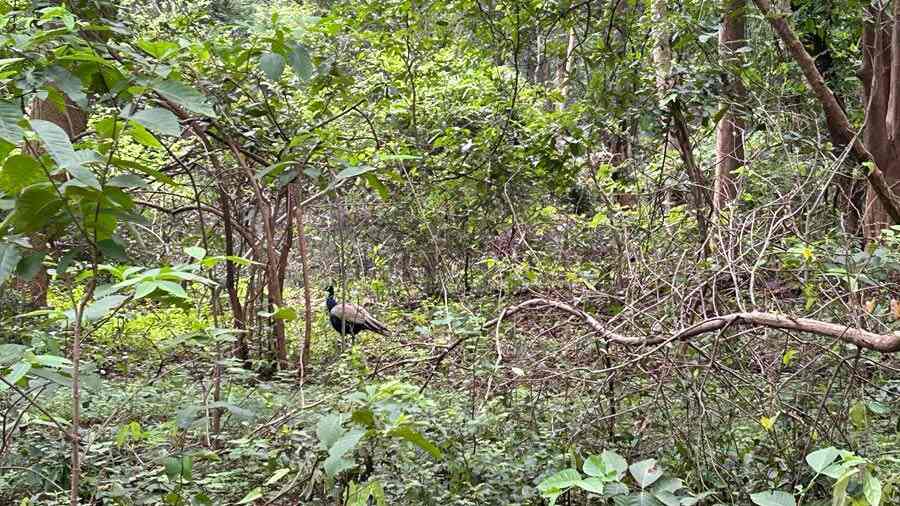
The first sighting — a peacock by the road leading to the camp
If destiny is in a joyous mood, your first wildlife sighting can be on your way to the camp itself. The laal matir rasta, which is sure to remind you of Santiniketan, has thick forest cover on either side. A few junctures marked as ‘Elephant Passing Zone’ or ‘Bison Passing Zone’ made us scan through the greenery with keen eyes, hoping for a glimpse. While the larger animals remained elusive at that time, we spotted a peacock on the sidewalk. Not bad for a first sighting!
Waterfront views, on repeat
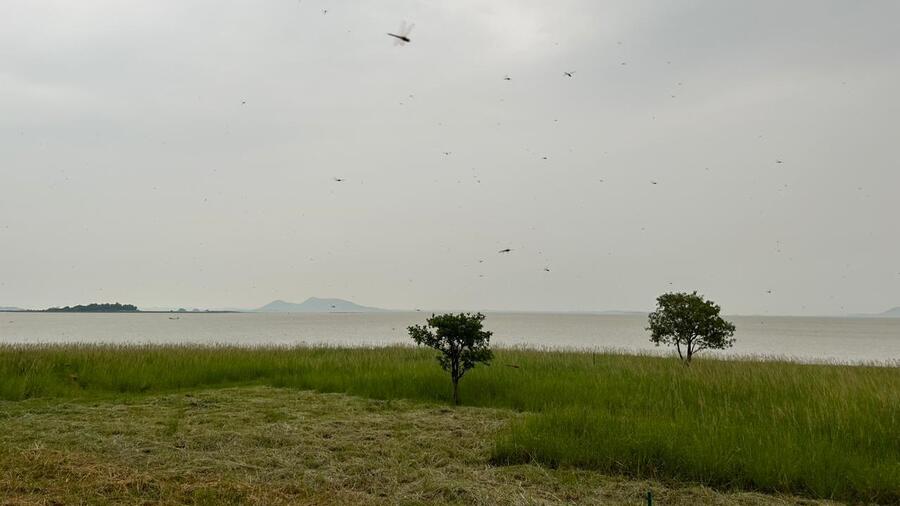
The view from the balcony of the old building at Debrigarh Nature Camp
The nature camp is about 2km from the bustling crossroad near the registration office. An off-road ride took us to the camp, which has accommodations of two types — a two storied old building called the Bison Block and five newly built cottages that are named after the five elements of nature.
Sitting on deck chairs in the balcony of our room in Bison Block that faces the marshlands and Hirakud Lake, or staring at the green expanse from the lounge area right outside the door, one can spend hours simply soaking in the experience of being in a jungle. Listening to the critters chirp, looking at the swarms of dragonflies, spotting known and unknown birds, hoping for an animal or two to appear from the forests and approach the salt lick or the marshlands is an experience to tuck away in your travel journal.
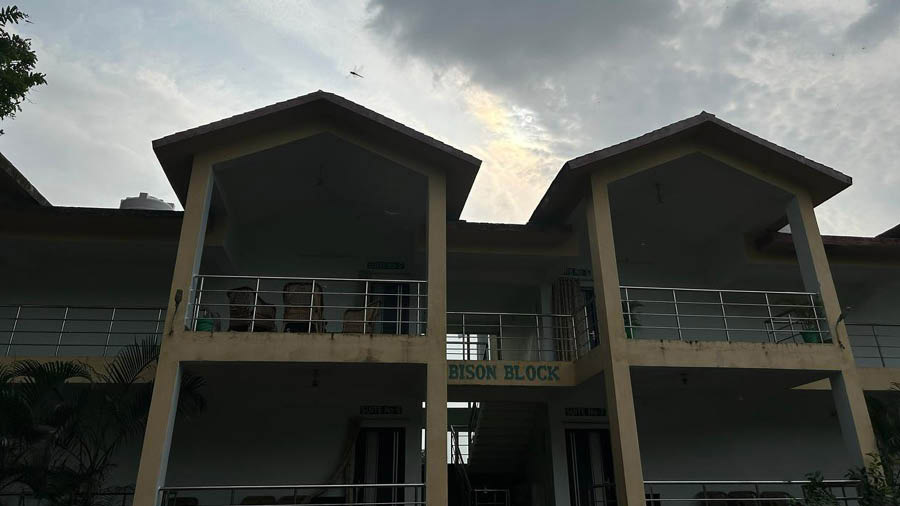
The Bison Block
The outdoor dining area, near the newly built cottages and a two-minute walk from the Bison Block also overlooks the expanse of marshlands. The balconies of the rooms and the dining area are covered with nets to prevent birds, dragonflies or any wildlife from entering. The food is light and tasty, and we got to try a local delicacy dalma along with some fresh fish caught from the river for lunch for our very first meal at the camp. The nature camp also a tandoor bhatti, and you can enjoy a live barbecue or a DIY experience if you book 24 hours in advance.
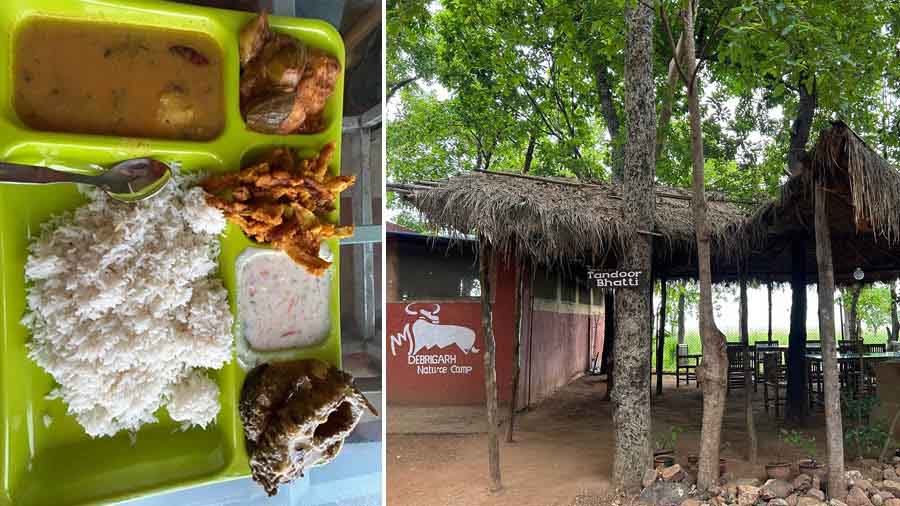
Lunch with fresh fish and Odia dishes like ‘dalma’, and (right) the ‘tandoor bhatti’
An island of bats, and a day on the water
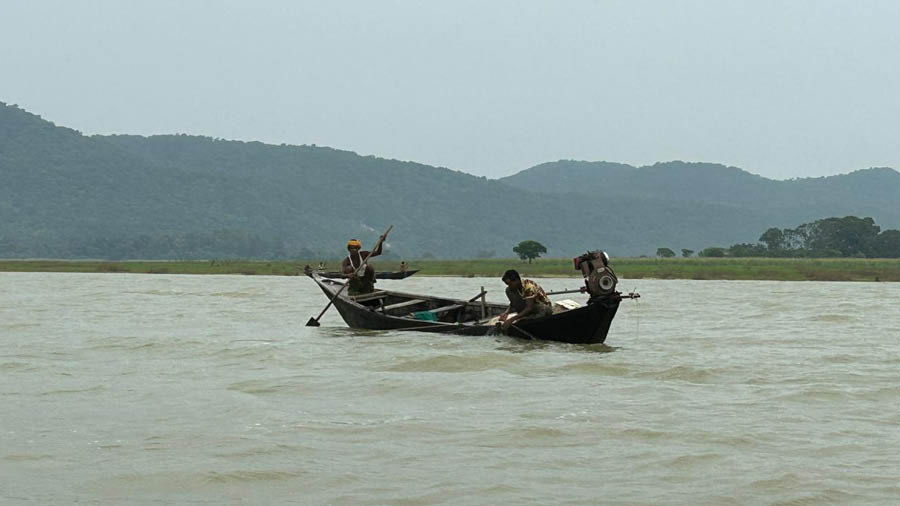
Fishermen on the Hirakud reservoir
The nature camp has a jetty and offers boat rides to small islands on the Hirakud reservoir. The first trip is early in the day, around 7 am. We put on life jackets (it’s a must) and took a two-hour trip on the lake, passing by Sunset Island and Cattle Island. The only stop that is permissible during monsoon is at a fisherman’s island named Bat Island, home to India’s largest bat species, the Indian Flying Fox.
Old and unused boats, huts of a small community, fishnets and a small trail to a small wilderness area that is the home of the bats — Bat Island is the perfect example of man meets wild. A yellow barricade stops you at the end of the mini trail, after which is the core area.
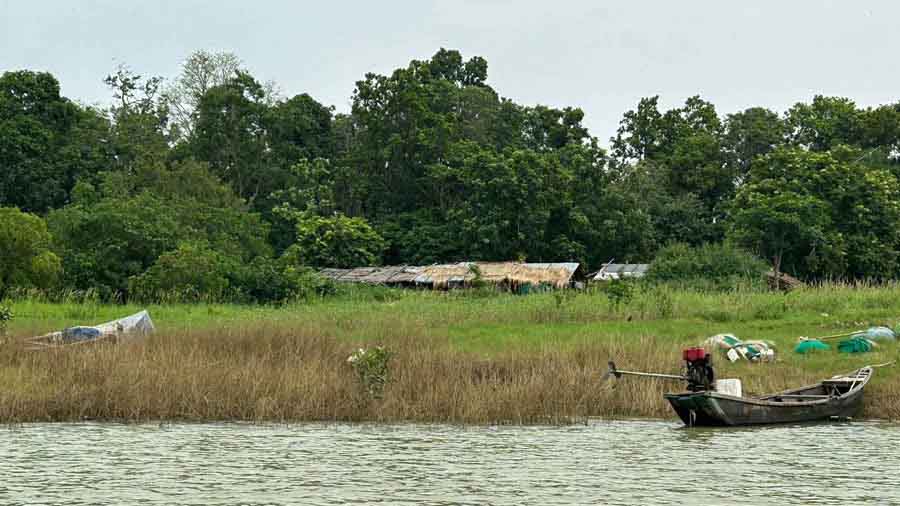
Bat Island, which is also home to fishermen as well Indian Flying Fox Bats
The jetty at Debrigarh Nature Camp offers umpteen picture-postcard moments — green mountains near and far, a sky that keeps changing between azure and greyscale, blue and yellow boats bobbing on the lake, and a tree house that takes you straight back to childhood.
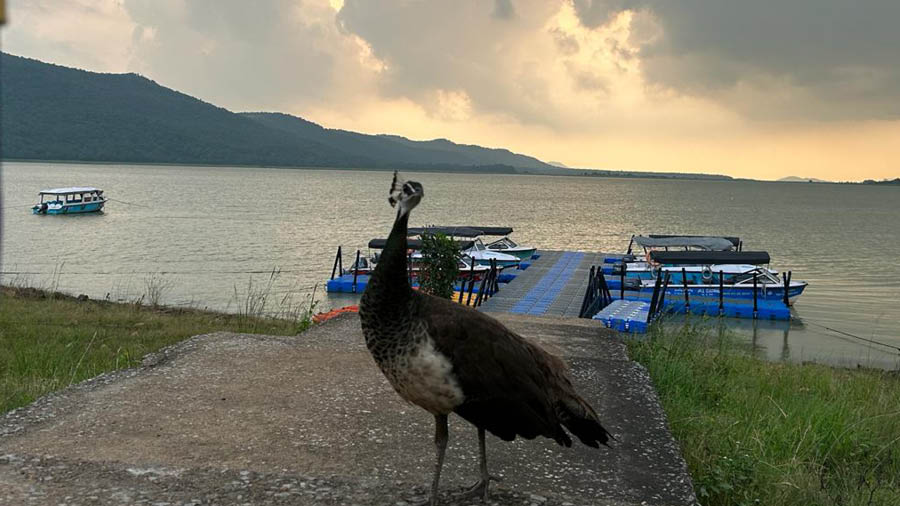
A peahen who is a resident of the Nature Camp
A peahen and peacock couple, who are inhabitants of the premises, are also among the ones who frequent the jetty. They are a friendly duo who do not like petting but happily peck at some muri if you offer it to them.
There’s a tiger on the prowl…
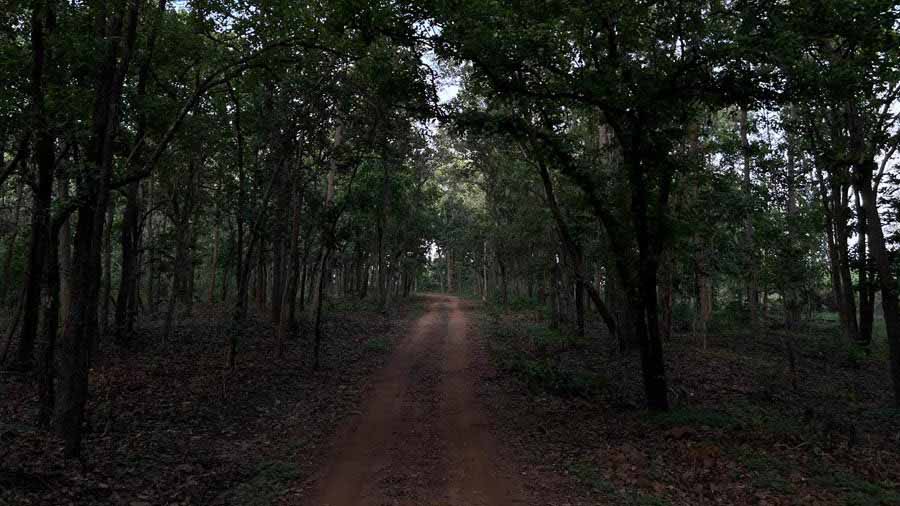
A jungle trail
Our welcome to the camp and the jungle was with news both disappointing and thrilling. The disappointing news was the wildlife tends to move towards the upper part of the mountains during monsoon, and hence sightings might be bleak. The thrilling news was that there was a tiger prowling who had migrated from another nature reserve and was trying to get accustomed to the new habitat. While we did not have a rendezvous with the majestic beast, the very prospect was exciting enough.
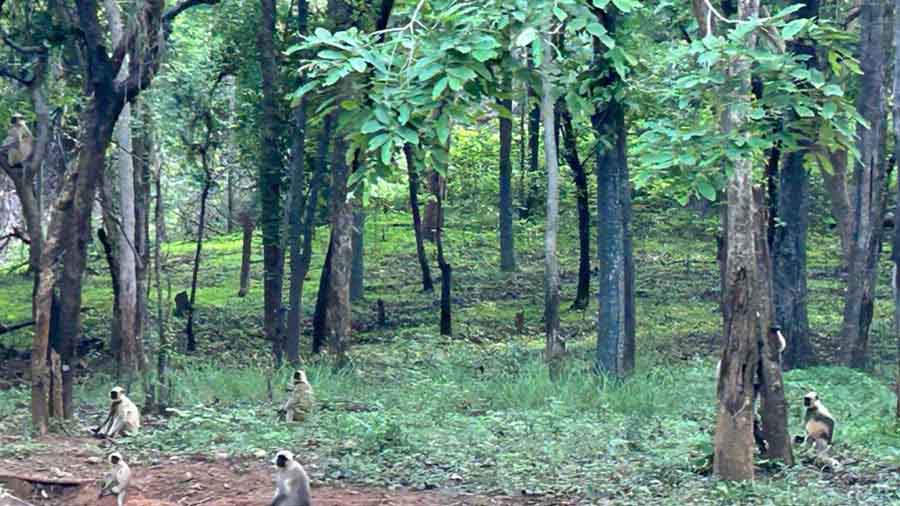
A joyful sighting of langurs
The jungle safari takes about two hours, and in the afternoon the next day we were sitting in an open-top jeep, we were scanning the jungle on both sides intently, trying to spot an animal or two. We spotted a small herd of chital (spotted deers) and a group of langurs, along with peacocks. The hope of seeing a leopard or at least a baby elephant had to be put back on the wishlist, an incentive for another visit perhaps.
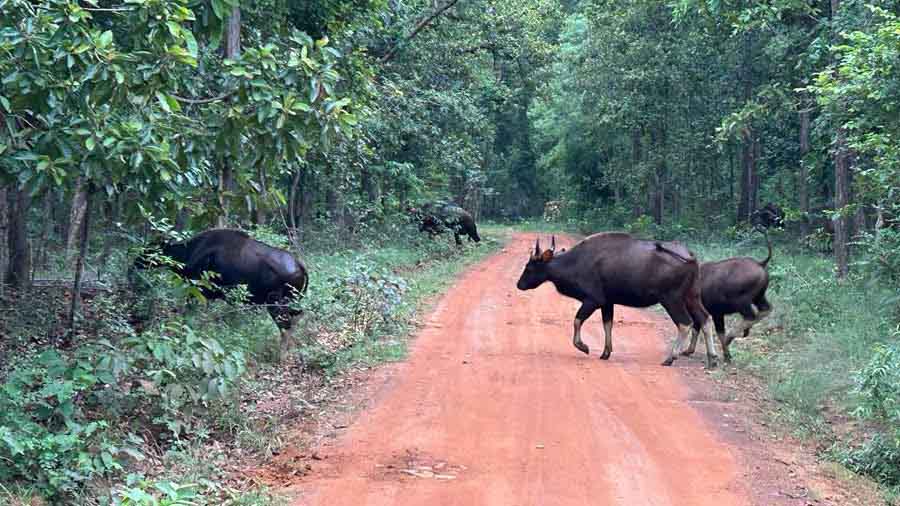
Bison crossing the trail near the nature camp
There was more in store for us though. On the way back from the safari, very close to our stay we spotted a herd of Indian bison or gaur. The herd, which was returning to the other side of the jungle after visiting the salt lick passed by unhurried, as if they were compensating for the sightings that remained unticked on the wishlist.
After the safari we returned to the nature camp and had our breakfast. The menu was an assortment of items like idli and coconut chutney, boiled eggs and toasted bread and upma. We headed back to our rooms and relaxed through the rest of the day.
A cuppa in the wilderness
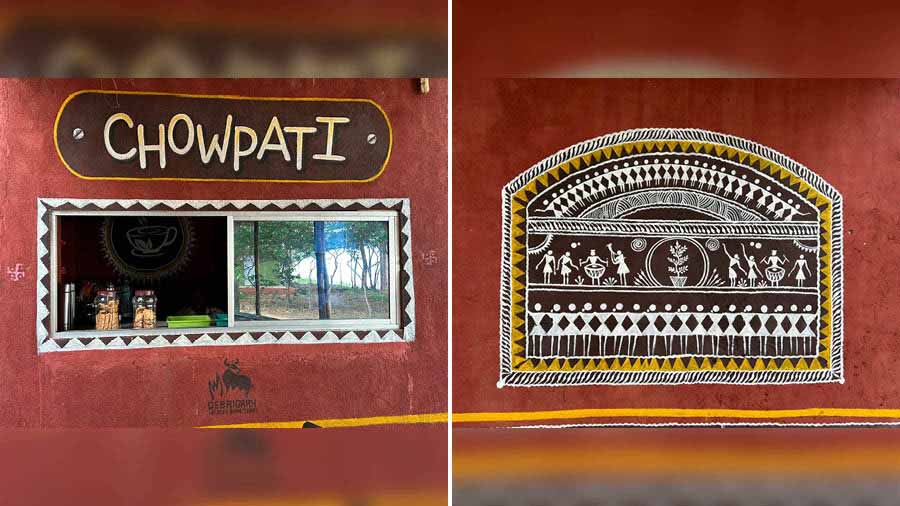
(L to R) A tea stall near the watchtower, tribal mural on the wall of the tea stall
The last stop of the jungle safari is the watchtower at Parbati Tung, which is also on the banks of the lake. There’s a small eatery called Chowpati that serves a masala tea that will bring a grin to every tea lovers’ face. The brick-red coloured facade of the tea stall is decorated with a mural of tribal art and the outdoor seating has a thatched roof overhead with a few tables and chairs and some cemented benches facing the reservoir to enjoy tea with a view.
We spent our last evening at the camp on the stairs of the jetty, enjoying the breeze during dusk. We returned back to the camp only for the piping hot plate of Dry Chilli Chicken, which we devoured while soaking in the eerie vibes of the jungle beyond.
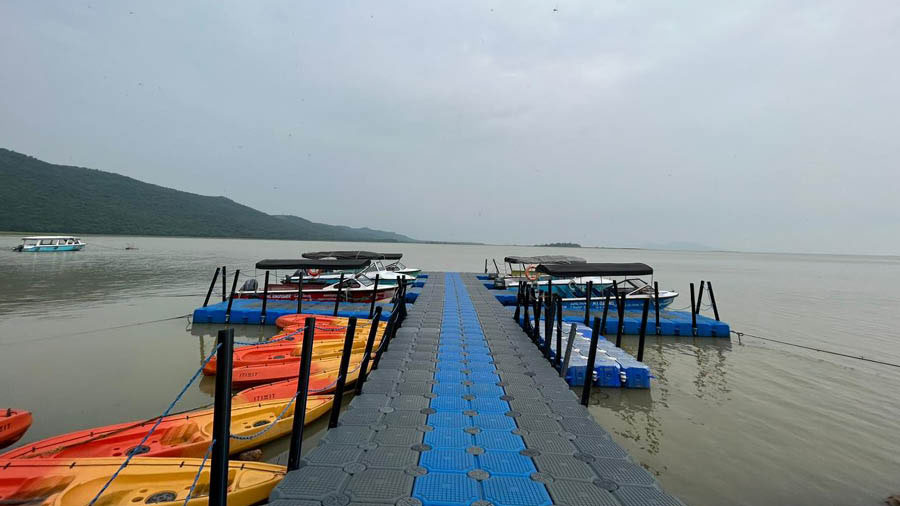
Boats on the jetty at the camp
Travel details:
· Debrigarh is about 600 km/14 hr by road from Kolkata and about 300 km/ 8hr by road from Cuttack.
· The nearest railway station for Debrigarh Nature Camp is Sambalpur, about 35 km away. The closest airport is the Biju Patnaik International Airport in Bhubaneswar, about 320 km away.
· At the registration office, near the entry gate of the sanctuary, you have to show your booking details and a government ID and pay Rs 150 for a receipt that also is your entry document to the jungle and the Debrigarh Nature Camp.
· Carry printed copies of your accommodation booking and your ID
· Rooms in the Bison Block are Rs 5,000 for a double occupancy AC Suite, inclusive of all three meals. There is an additional charge of Rs 40 per day per visitor as an entry fee to the jungle.
· An open jeep safari costs Rs 2,000.
· Accommodations for Debrigarh Nature Camp can be booked here.
